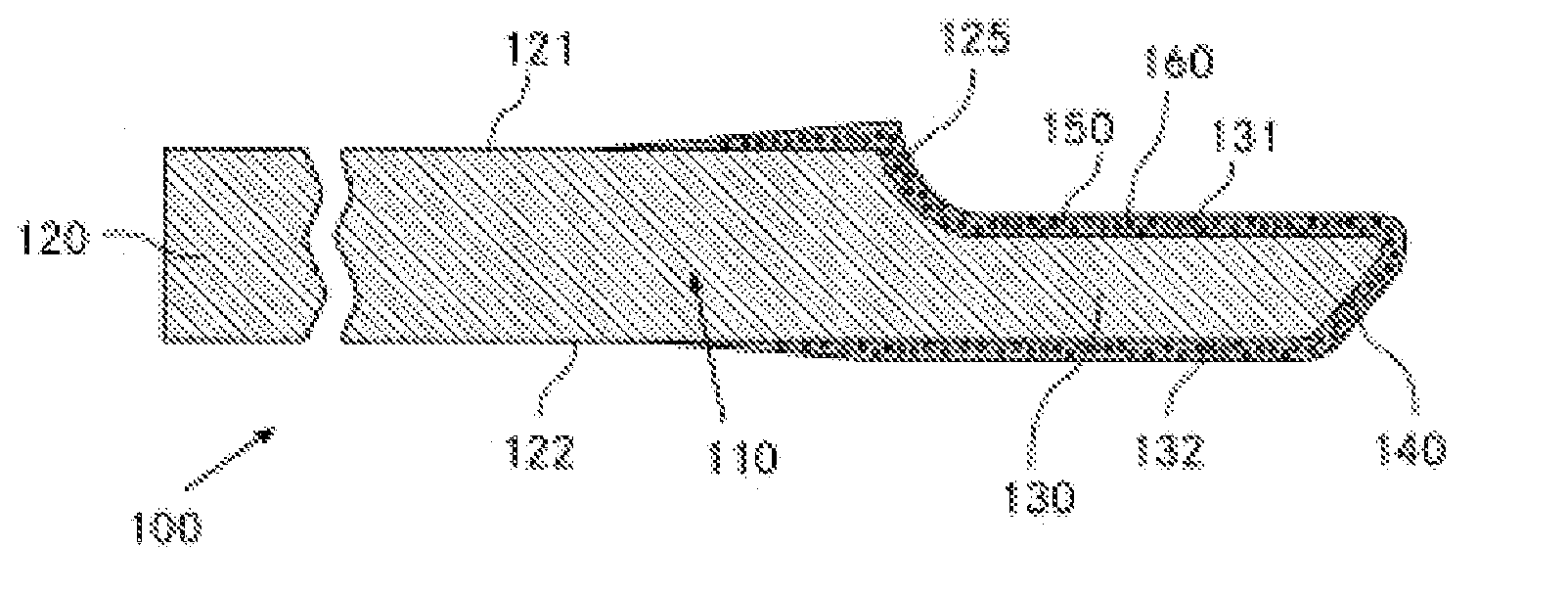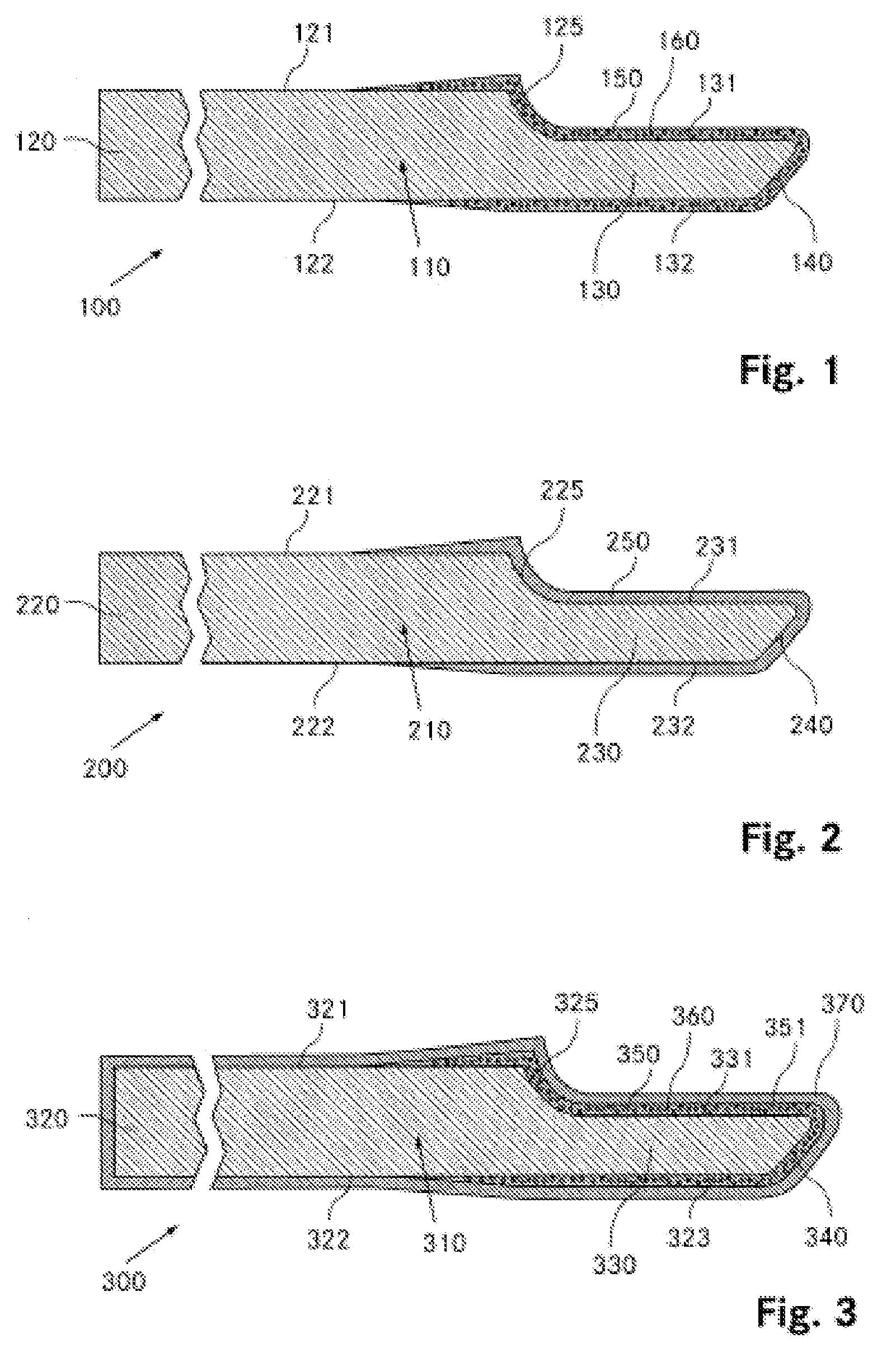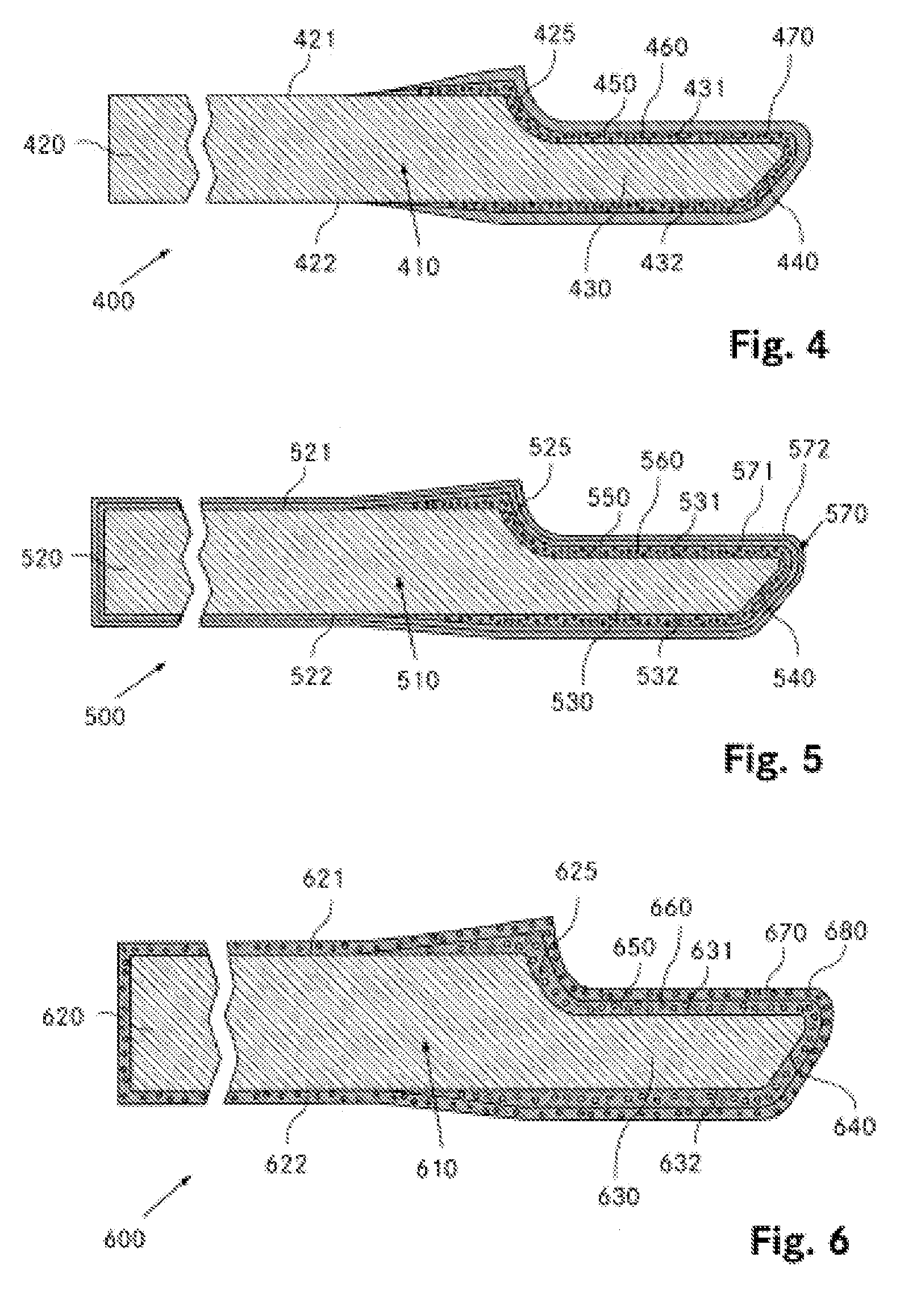Doctor blade
a blade and blade technology, applied in the field of blades, can solve the problems of uncontrollable release of printing ink on the printing carrier, unevenness or irregularities, corresponding wear, etc., and achieve the effect of improving wear resistance and precise scraping
- Summary
- Abstract
- Description
- Claims
- Application Information
AI Technical Summary
Benefits of technology
Problems solved by technology
Method used
Image
Examples
Embodiment Construction
[0125]FIG. 1 depicts a lamellar doctor blade 100 according to the invention in cross section. The lamellar doctor blade 100 comprises a base element 110 made of steel which on the left-hand side in FIG. 1 has a rear region 120 having an essentially rectangular cross section. The rear region 120 is provided as a fastening region in order to hold the lamellar doctor blade in, for example, an appropriate holding device of a printing machine. The doctor blade thickness measured from the upper side 121 to the under side 122 of the rear region is about 0.2 mm. The length of the base element 110 or the lamellar doctor blade 100 measured perpendicular to the plane of the plate is, for example, 1000 mm.
[0126]On the right-hand side in FIG. 1, the base element 110 is tapered stepwise from the upper side 121 of the rear region 120 to form a working edge 130. An upper side 131 of the working edge 130 lies on a plane below the plane of the upper side 121 of the rear region 120 but is essentially ...
PUM
 Login to View More
Login to View More Abstract
Description
Claims
Application Information
 Login to View More
Login to View More - R&D
- Intellectual Property
- Life Sciences
- Materials
- Tech Scout
- Unparalleled Data Quality
- Higher Quality Content
- 60% Fewer Hallucinations
Browse by: Latest US Patents, China's latest patents, Technical Efficacy Thesaurus, Application Domain, Technology Topic, Popular Technical Reports.
© 2025 PatSnap. All rights reserved.Legal|Privacy policy|Modern Slavery Act Transparency Statement|Sitemap|About US| Contact US: help@patsnap.com



